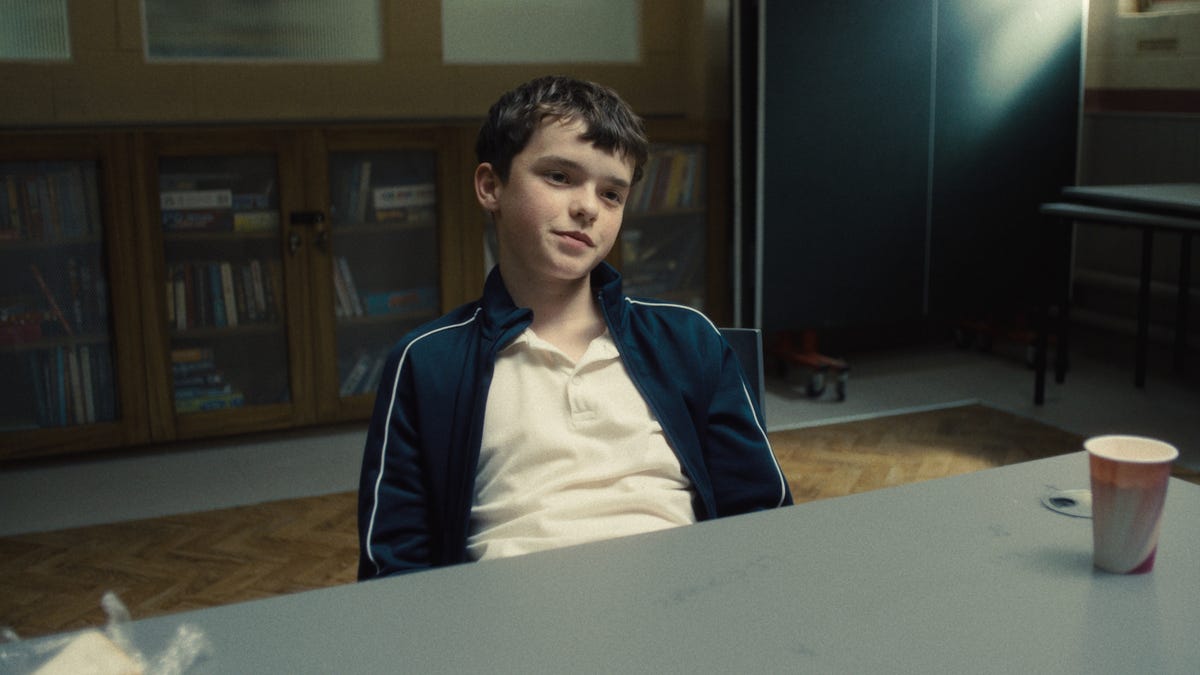What the emojis in Netflix’s ‘Adolescence’ mean
Since its release, Netflix’s ‘Adolescence’ has sparked widespread discussion, offering a chilling look at the impact of the internet and social media on children.
unbranded – Entertainment
If you haven’t heard of Netflix’s “Adolescence” yet, it’s only a matter of time.
The blockbuster British limited series was released on the streaming service March 13 and has been a fixture in its top 10 list ever since. In fact, it has become Netflix’s fourth-most popular English-language TV show of all time, behind only “Dahmer – Monster: The Jeffrey Dahmer Story,” “Stranger Things” and “Wednesday.” The story of a 13-year-old boy who brutally murdered a female classmate has become a cultural hot topic, particularly in the U.K., where it is being made available to stream in schools and has even been discussed by Prime Minister Keir Starmer. Plan B Entertainment, the studio headed by Brad Pitt that produced “Adolescence,” is in talks for a sequel series, Deadline reports.
If you feel like this is British-accented déjà vu, you might remember that last year, Richard Gadd’s (allegedly) autobiographical “Baby Reindeer.” a little-known British miniseries, suddenly became a word-of-mouth sensation on Netflix. But “Adolescence” has gone far and above the success of “Reindeer,” not only surpassing it on the Netflix charts but also getting its warnings across about social media and toxic masculinity across with the awkward interference of real-life drama. You can’t browse online without tripping over everyone’s opinions about “Adolescence,” and some debate whether it is realistic or alarmist, and whether it should really be shown to kids.
But what all those differing viewpoints agree upon is that the series is effective, or else we wouldn’t still be talking about it. And here’s why we probably won’t stop discussing “Adolescence” anytime soon.
How ‘Adolescence’ affects you so much
So how did the series become such a phenomenon? Well, for one thing, it helps that it’s exquisitely made.
Each of the episodes is choreographed into one long, gripping shot, so the camera never cuts away from the story. That means we see every graphic, uncomfortable and upsetting detail, like when police break down the door of 13-year-old Jamie Miller’s (Owen Cooper) house to arrest him for murder in the first episode. We see his full car ride to the police station, the way he squirms while an intake officer asks him personal details, the horror on his father Eddie’s (Stephen Graham, who also co-wrote the series) face as Jamie is strip-searched and photographed for evidence. And then we see a very different kind of horror as interrogating police officers show Eddie and Jamie security-camera footage of Jamie viciously attacking and stabbing a young girl to death.
Each episode is equally unrelenting with this device. The second sees the lead detectives on the case (Ashley Walters and Faye Marsay) trying to get more information about Jamie and his victim at a chaotic middle school, the panning camera capturing apathetic teachers, kids glued to their phones and violent words and behavior.
The third episode consists entirely of an interview between a cocksure Jamie, imprisoned in a youth psychiatric institution pending trial, and a child psychologist (Erin Doherty, “The Crown”), attempting an assessment. It’s here that Jamie’s temper and potential for violence comes out as the diminutive figure of this skinny teen is threatening enough that a grown woman flinches and the camera drops below his rage-filled face.
This story is heavy and nuanced, and it is enhanced both by the one-shot device and by a phenomenal cast, particularly Cooper and Graham (a household name in the U.K.). The tragedy of the story ― the death of an innocent young girl, the loss of the innocence of her killer, the guilt his parents will carry forever ― bleeds through every scene. It is breathtaking and miserable to behold, a true can’t-look-away trainwreck of sorrow.
Parents around the world are worried about their kids online. ‘Adolescence’ has struck a nerve.
“Adolescence” deals with an extraordinary and unfathomable event. Yet parents can’t help but relate to the struggle of the Millers. They’re dealing with unique and desperate challenges, all thanks to those little smartphones so many kids are carrying around in their pockets. From worrying about how much TV little kids can watch to what social media is doing to the mental health of teens, parenting has turned into a constant battle against the ills of the screen.
“Adolescence” highlights the horror of children getting radicalized online, as young as age 13. Boys can be especially vulnerable to woman-hating “incel” culture (a portmanteau of “involuntarily celibate”). Early adolescence is a period that can feel “confusing” and “extremely isolating” for teenage boys as they develop a stronger sense of identity, Dr. Caroline Fenkel, the chief clinical officer with Charlie Health, a virtual mental health platform, told USA TODAY. “Without strong emotional support systems, they’re more likely to seek out anything – people, content or behaviors – that gives them a temporary sense of relief, power or belonging.”
But you don’t have to have a teenage boy to have fear struck into your heart while watching this series. The risks associated with children and teens’ unfettered access to the internet are manifold: Cyber bullying, sexual violence, sextortion, phone addiction, mental-health decline, poor academic performance and so much more. The message of “Adolescence” is clear: Hang on tight to your children. But even as Jamie’s parents take responsibility for letting him drift too far into the online world, they are left wondering how much they really could have controlled it in our tumultuous world. That fear of lacking control is one every parent shares.
Contributing: Rachel Hale

Leave a Reply